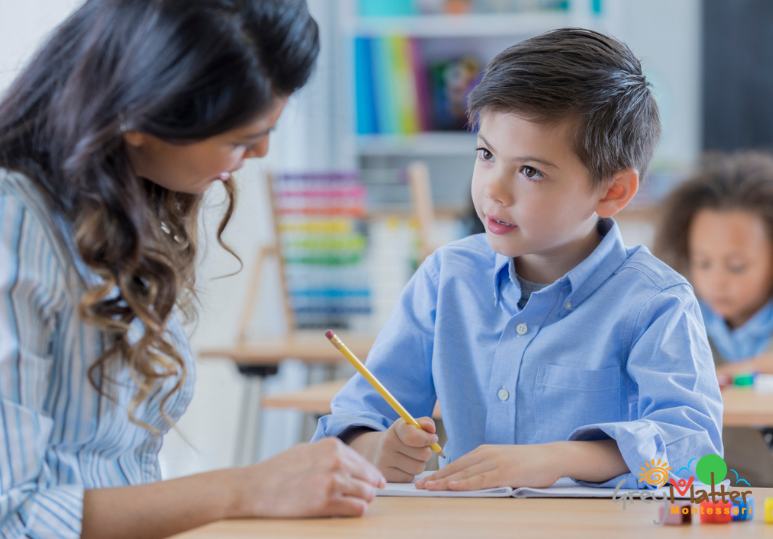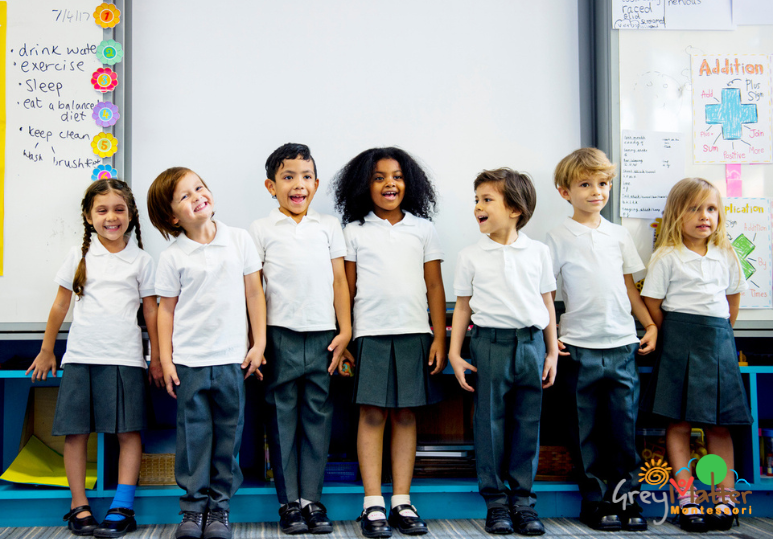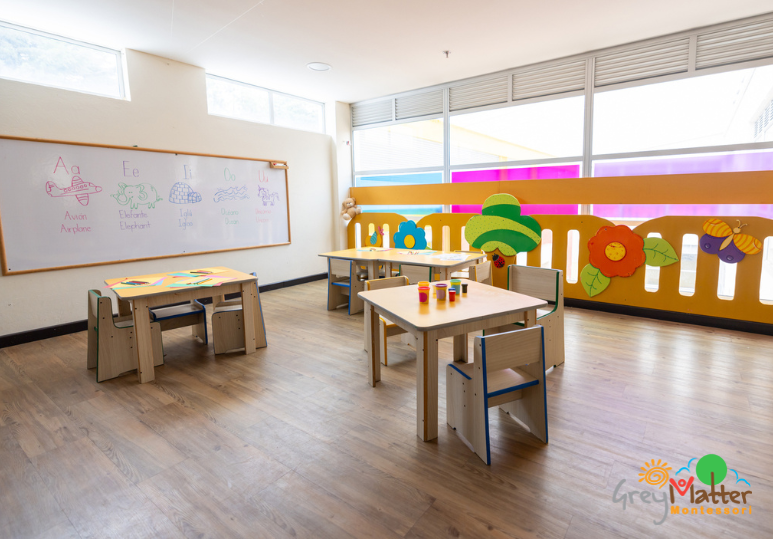Are you, your child, or your family struggling with your home dynamic? Was your home more serene before the lockdown happened? Here are some tips you can use to try and recreate that pre-pandemic peace.
The continuation of the stay-at-home orders due to COVID-19, while good for public health, can be extremely taxing on our minds and families. Fear, uncertainty, boredom, and anxiety are just a few of the increased emotions many of us are feeling right now. Some of the worst affected individuals of the pandemic are our children.
As a parent and leader of the household, you want to keep your children and home dynamic happy and tranquil. As your family's emotions get tense and start to boil over, that tranquillity can be easily disturbed. To counteract this, here are some ways you can try and keep your children and, therefore your home, peaceful.
We Help You Keep The Peace At Home Through Our Montessori Education
At Grey Matter Montessori, we are committed to ensuring that all of our students are taught the importance of social skills and emotional well-being. Our methods are scientifically proven to teach your child valuable lessons and skills essential to maintaining a peaceful home atmosphere.
To learn more about our Montessori philosophy and methods, contact us at 587-707-4739.
8 Ways You Can Keep Your Home Peaceful During Lockdown
1. Be Sympathetic To Your Children
The truth is that children can be quite naive. They may still be confused about why they cannot have their friends over for a sleepover or play date. This is where it is important to be sensitive and sympathetic to your child’s feelings. As unprecedented as this reality is for us, it is even more so for our children. Being extra empathetic towards your children can go a long way in helping them stay mentally happy and healthy.
2. Arrange Virtual Playdates
With children, especially young elementary-aged ones, the lockdown has made it even more challenging to see their friends and peers. While you may feel that you are struggling, you must remember that your children are less mentally and emotionally equipped to handle this challenge. Be sure to give them a hand planning some virtual or outdoor play dates so they can still see their friends and work on their social skills.
3. Stay In Touch With Loved Ones From Afar
Children can be more prone to anxiety and stress than adults. If your kids are close with some family members, be sure to give them ample opportunity to speak to their cherished family members. If they are worried about a grandparent due to COVID-19, try and set up a video chat to ease their minds.
4. Lead By Example
As the primary role model in your child's life, your actions have a huge impact on your little one. Even more so since they are spending most of their time at home due to the lockdown.
Don’t let the pressure get to you. How will you be able to take care of your children if you haven’t been taking care of yourself? While we all want to think that we are always doing great, the reality is that sometimes we aren’t our best selves. Take some time to do what you need to do to relax. Whether it be a bath, some yoga, or an hour away from the kids, don’t be afraid to do what you need to do to be the best parent possible to your child.
5. Keep the Day Structured and Busy
Structure and routine create a sense of order and normalcy for a child whose old routine may have been entirely thrown off. Since the old routine no longer really works, try implementing a new one that is predictable so your children can feel secure, yet flexible enough so that they do not feel restricted.
6. Keep Physically Active
The link between mental health, calmness, and physical activity is still being researched to this day. However, nearly every new study that comes out shows a strong link between physical activity and strong mental health. With strong mental health comes a stable and peaceful home dynamic. While it may be hard to be more active during a winter lockdown, we have created a list of indoor activities to stay healthy this winter.
7. Try a New Hobby
With more free time nowadays, the mind is more likely to want to wander. This wandering mind can sometimes drift off to more unpleasant thoughts and lead to anxiety and stress. If you or your child are feeling this, a new hobby or distraction to relax the mind can be just what is needed. Maybe try making some art, learning a musical instrument, or perfecting a new board game. There are tons of hobbies out there, just waiting to be picked up.
8. Don’t Be Afraid To Talk To Your Pediatrician
If you are concerned about your child’s emotional or physical well-being, don’t be afraid to reach out to your pediatrician. They have the resources and training to help you and your family cope with a variety of issues, and keep your home at peace.
Related Reading:
8 Ways You Can Be Involved in Your Child's Education While at Home
5 Aspects of a Montessori Education That Focus on the Social and Emotional Growth of Your Child
3 Tips for Keeping Your Child Motivated as the COVID-19 Pandemic Continues
Contact Us Today To Learn About Our Comprehensive Education Methods
At our NW Calgary Montessori preschool and daycare, we are proud to provide our students with the best education possible and life skills necessary to lead a healthy life and a peaceful home. Our educators are extensively trained on the Montessori method so that your child can grow and develop into the best version of themselves. To learn more about Grey Matter Montessori and our enrollment opportunities, contact our team by calling 587-707-4739 or filling out our online contact form below.
FAQ’s
How can I help my child with online learning?
Some children may struggle more than others with online learning. If you’ve noticed their grades slip while doing online education, check out our article on 7 Tips to Help Your Child Succeed At Online Learning.
Will the Montessori method help me at home?
The Montessori method has been thoroughly researched and studied and has shown to be effective at improving students' cognitive ability, social skills, and ability to handle emotions. These traits are strongly associated with leading a healthy life, and therefore a happy, peaceful home.
What are some frequent signals that my child is struggling with school?
- Low motivation to do school work
- Easily stressed, anxious, and frustrated with school
- Makes negative comments about school, class, and teachers
- Does not finish schoolwork or actively avoids it
- Takes long periods of time for simple school tasks
Be sure to talk to your teachers about your child’s academic performance and personal development.





